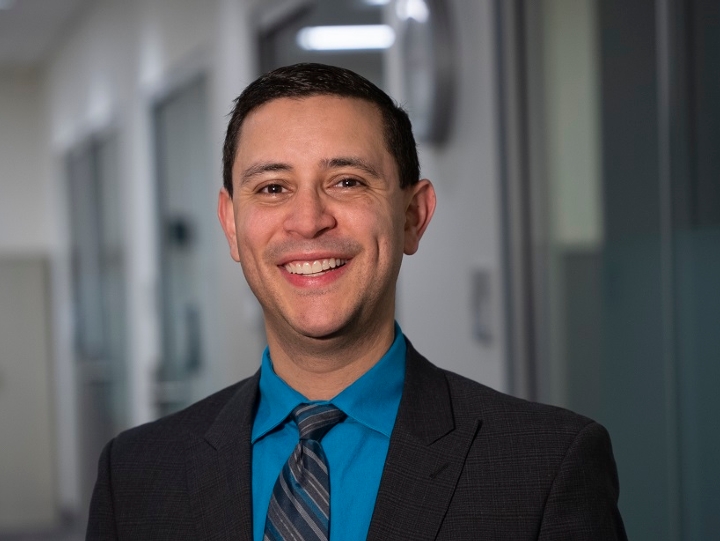
The Ends Should Not Justify the Means
Civic Engagement Civic Learning and Democratic Engagement VP for Student Affairs
November 1, 2022
JCC Connexions, Vol. 9, No. 1, February 2023
Fostering Moral Development: An Ongoing Column in JCC Connexions
In late January 2023, news broke that newly elected U.S. House of Representative member George Santos had blatantly, repeatedly, and maliciously lied, fabricated, and embellished most of his life experience. While the scope of the lies with which Santos engaged is staggering, it is not entirely unsurprising. As a society, I would assert many Americans have accepted being lied to by elected officials as a part of “normal” life (the conversation on if this dynamic should be acceptable is a conversation for another day). What set Santos apart from this template was his level of lying as a candidate, which resulted in justified accusations of not knowing who exactly his constituents elected, as the public persona Santos presented as a candidate is apparently not indicative of Santos the actual human being.
It seems obvious to me Santos made the decision to fabricate his background, experiences, and likely his beliefs in pursuit of his goal of being an elected official. Based on the scale of his lies, it looks like he decided to accomplish that goal at any and all costs, including seriously and thoroughly compromising his moral integrity and relationship with the truth.
The revelations of Santos’s deception led to calls for him to resign, be expelled from Congress, and have legal action taken against him. Many have said Santos should be made an example of, with the prevailing wisdom of some being if you breach public trust to gain public office, you should be denied that privilege. As a former student conduct officer, I believe in individuals being held accountable for fraudulent behavior, as Santos’s behavior appears to be. However, as of this writing in February 2023, Santos faced no consequences for his misdeeds. This response likely reflects the perspective of the modern Republican party, who has seemingly taken the approach that if someone is a member of their party, any improper behavior will be selectively ignored for politically expedient purposes. If anyone wants to claim that opinion is a partisan take, I encourage them to look at the differences in the Republican party’s response to obvious and objectively inappropriate behavior based on the party affiliation of which the individual is involved. And to be clear, the Democratic party has been complicit in similarly selective accountability, though not on the scale of their political counterparts.
One of my bigger concerns apart from the political implications is what has happened in our social and political environment in which Santos felt this behavior was okay. Due to his lies, it is hard to know if, when, and for how long Santos may have gone to college, as his claim of graduating from New York University (NYU) was shown to be false. However, for the purpose of this blog, let us make a few assumptions (I know the danger of assumptions, but we can proceed with that concern acknowledged). Let us assume he went to NYU for at least a couple of academic terms. Let us further assume at least once he had a meaningful interaction with a higher education professional during his time at NYU. Additionally, let us assume NYU engages in the nurturing of positive ethical character development and Santos’s egregious lies were not the result of never having had the opportunity to learn or think about good moral behavior. If those assumptions are fair, then I choose to believe at some point in his interactions with NYU higher education professionals, Santos would have been taught to be an ethical, honest, open person. I choose to believe NYU constantly reaffirmed their commitment to educating and developing morally and honorably forthright future leaders. And I also choose to believe if Santos had displayed to any NYU higher education professionals any inclination towards dishonest behavior, those higher education professionals would have appropriately addressed those concerns.
Further, if my assumptions are correct, it seems Santos did not learn or consciously chose to ignore any lessons regarding ethics, honesty, and transparency he was provided throughout his time in higher education. Why? There could be any number of reasons Santos used as justification for his behavior, however, one possible explanation is because of the lack of accountability of misdeeds in the public sphere (from which, as noted earlier, Santos has benefitted). When there are so many different examples of individuals who have escaped or skirted the consequences of their behavior, it emboldens other individuals to do the same. How do higher education professionals continue to educate students knowing their efforts may not be affirmed through public examples?
The Santos example to me only further solidifies the vital moral education higher education provides. It demonstrates higher education professionals must take every single opportunity to provide clear and consistent ethical character development for students. Doing so reinforces the idea moral and ethical behavior is important, necessary, and essential. And it emphasizes the social behaviors our culture will and will not tolerate. While this education is not always going to match what happens publicly, it sets a tone for what broader society will accept. Higher education must continue to be the proverbial North Star for the direction we want our society to go.
I recognize this opinion is somewhat idealistic, and there will always be ethically questionable behavior which is not only permitted but rewarded. But the job of higher education professionals is to set the standard for which all student, faculty, and staff are expected to meet. Anything less concedes the moral high ground to those with Machiavellian aspirations and intentions, which is a position to which should never be yielded.